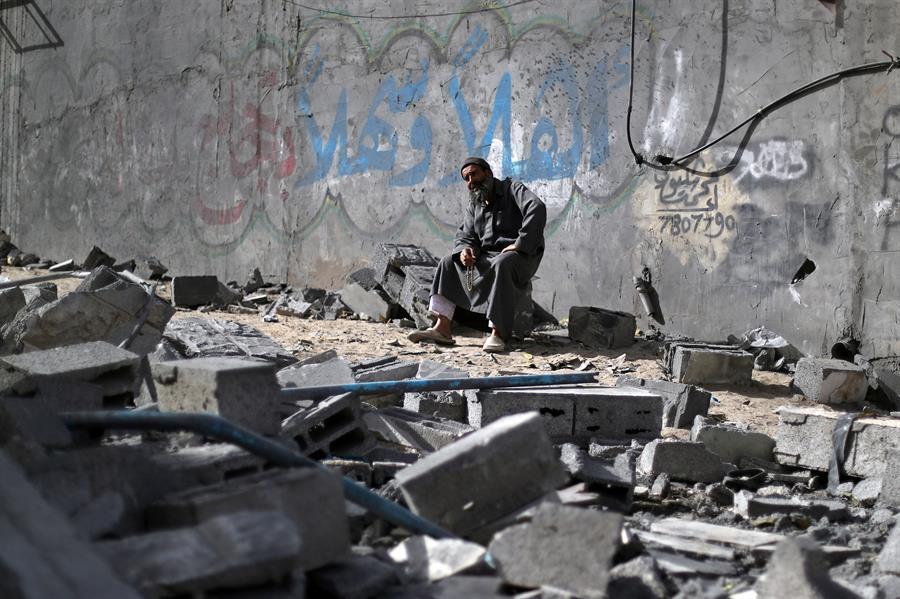
The Israeli military lifted protective restrictions on residents in southern Israel on May 6 following international reactions, while Gaza’s ruling Hamas group declared a cease-fire deal to end the deadliest fighting between the two sides since the 50-day war in 2014.
The death toll from Israel’s two-day military attacks against the Hamas-run Gaza Strip rose to 27 after two more bodies were pulled from the rubble on May 6, according to Gaza’s Health Ministry.
On the Israeli side four civilians were killed from incoming rockets and a Kornet anti-tank missile. One hundred thirty others were injured, according to the Israeli media.
The Islamic Jihad militant group, which Israel accused of instigating the latest violence, confirmed that a “mutual and concurrent” truce had been brokered by Egypt.
Egyptian mediators, along with officials from Qatar and the United Nations, helped reach the deal, Hamas spokesman Hazem Qassem said.
Israeli Prime Minister Benjamin Netanyahu pointedly noted that “the campaign is not over, and it requires patience and judgment.”
The latest fighting broke out after Palestinian militants accused Israel of not honoring an earlier cease-fire deal from March and opened fire on soldiers on the Israeli side of the Gaza border.
The intense fighting over the past weekend came to a halt in the early morning hours on May 6 and residents on both sides went back to their daily routines. The Israeli military said that as of 7 a.m., “all protective restrictions in the home front will be lifted.”
Hamas’ leader Ismail Haniyeh said late May 5 that the militant group was “not interested in a new war,” and the start on Monday of the Muslim holy month of Ramadan likely lessened motivation for battle. Signs of normal life slowly returned to Gaza, with banks opening after three days; schools are to reopen on May 7.
On the other hand, Israel is to host the popular Eurovision song contest next week, and the backdrop of fighting would have likely overshadowed the occasion and deterred foreign tourists.
In the meantime, U.S. President Donald Trump assured Israel May 5 that it has Washington’s full support after Israel led waves of retaliatory strikes.
“Once again, Israel faces a barrage of deadly rocket attacks by terrorist groups Hamas and Islamic Jihad. We support Israel 100 percent in its defense of its citizens,” Trump tweeted.
“To the Gazan people - these terrorist acts against Israel will bring you nothing but more misery. END the violence and work towards peace - it can happen!”
EU foreign policy chief Federica Mogherini on May 5 called for an immediate end to rocket attacks from Palestinian groups on Israel, and reiterated the Union’s “commitment to the security of Israel.”